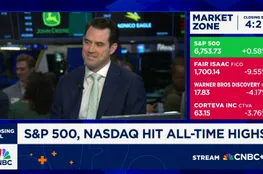Song Xiangqian, founder of Harvest Capital, highlighted in a recent interview with Caixin that a deep understanding of cyclical changes is vital for predicting future trends. Song, who has a seasoned background in the securities industry, has held significant roles in financial institutions like Everbright Securities and Guosen Securities. This experience afforded him a broad macroeconomic perspective and a sharp insight into economic trends and policy shifts. For over a decade, Song has keenly focused on the intricacies of economic cycles.
China's consumer market has seen significant transitions over the past years, moving from consumption upgrades to a wave of new consumption and, recently, turning towards consumption downgrades. Song explained that while consumption upgrades and new trends were driven by fundamental human needs, recently, due to a lack of effective demand and a reduced marginal propensity to consume, people have shifted towards essential, affordable goods, especially within the middle class. Predicting future shifts, Song anticipates that new consumer categories will emerge in China's market, though less frequently than before.
Since its inception, Harvest Capital has followed an investment philosophy focused on essential, high-frequency, and livelihood-related products, enabling them to develop a strong portfolio of consumer brands. In response to current macroeconomic conditions, Song said Harvest Capital will continue fine-tuning its investment strategy, honing in on cost-effective consumer categories to align with current economic cycles. To truly understand China's economy, Song emphasizes the importance of smaller cities and counties. With saturation in first- and second-tier cities, the growing economic influence in county-level areas has become a fresh catalyst for consumer growth.
In 2017, a strategic investment by Harvest Capital in Eastroc Beverage bore fruit, with the company going public four years later as the first functional beverage stock. This success underscored Harvest's market insights in the consumer sector, enabling Eastroc's market expansion and digital transformation. Similarly, significant investments in 2019 into Lao Xiang Ji supported its growth into China's largest Chinese fast-food chain by store count. Song noted gaps in China's catering market in terms of industrialization and chain scalability, emphasizing the need for aligned interests among stakeholders and robust management.
As China's demographic structure evolves towards an aging population, consumption will adapt accordingly. Even though the "silver economy" is ripe with opportunity, it still lacks maturity compared to youth-driven consumer groups. Harvest Capital plans to pivot towards constancy amid these evolving consumer needs. Song has consistently stressed that investments in consumer and tech sectors aren't mutually exclusive. Despite high interest in tech investments, Song warns of overheating in this area, while consumer investments show a steadier pace. Technological advancements demand systematic, long-term investments, and Harvest sees the key to economic growth in consistent cash flow growth.
An article by Song observed that China's VC sector is becoming more real-economy-driven, moving beyond a model reliant on storytelling. Future aims for Harvest Capital involve a transition toward "Harvest Industries," allowing Song to shift from investor to industrialist, enhancing post-investment services for corporations. Founded in 2007, Harvest Capital is dedicated to value investing in China's consumer and service sectors, managing assets over RMB 29 billion. By supporting Chinese consumption and empowering national brands, Harvest is a key player with notable investments in companies such as Jinmailang, Xiaocaiyuan, Eastroc Beverage, and many more.
























